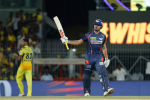
Safety, side effects, allergies and doses. Pfizer vaccine for 5-11 year olds explained
PTI, Dec 10, 2021, 11:30 AM IST

Australian children aged five-11 will start to receive the Pfizer COVID-19 vaccine from January 10, after it cleared the final regulatory step and was recommended for use in this age group by the Australian Technical Advisory Group on Immunisation (ATAGI).
ATAGI recommends children aged five-11 receive two 10 microgram doses (which is one-third of the over-12s dose), eight weeks apart. What does the trial data say about safety and efficacy? The Pfizer vaccine trial included 2,268 children aged five-11. Of these children, 1,517 were given two doses of 10 microgram vaccine three weeks apart, and 751 who were given a placebo. The results found the vaccine was safe and had good efficacy.
Children given the vaccine had similar antibody levels after the second dose to older adolescents and young adults (aged 16-25). This indicates their immune system was able to recognize the lower amount of vaccine mRNA – the vital ingredient in the Pfizer vaccine – and still produce a good amount of antibodies to protect against the virus.
There were no serious reactions in this trial, however, the sample size wasn’t large enough to detect rare adverse events.
The most common side effects occurred in the first two to three days and included –painful arm (around 70 percent at any time in the first week after vaccination but usually in the first few days), headache (around 25 percent), and tiredness (around 35 percent).
The vaccine was around 90 percent effective at preventing confirmed COVID-19 infection, with three Covid cases in the vaccine group and 16 in the placebo group.
Based on this data, the Therapeutic Goods Administration (TGA) provisionally approved the vaccine for use in five-11-year-old Australians on Sunday, following United States’ Food and Drug Administration (FDA) approval at the end of October.
How safe and effective has it been overseas? Australia has around 2.3 million children aged five-11. So, we can look to the real-world experience of the Pfizer vaccine in the US to see what we can expect.
More than five million US children aged five-11 have had one dose and more than two million have had a second dose.
One potential concern authorities are watching out for is the risk of heart inflammation, called myocarditis. This is a rare side effect after the second dose in young males aged 12-17, with an estimated risk of around ten cases per 1,00,000.
No cases of myocarditis, or the related condition pericarditis, were reported in the clinical trial of five-11-year-olds.
No data is yet available on the real-world effectiveness of the vaccine to protect against hospitalization or infection in children aged five-11, however, this will emerge.
Why an eight-week interval? The US, European Union, Canada, and Israel have approved Pfizer for younger children. The US has gone with a three-week interval between doses, while Canada recommends eight weeks.
There are two reasons for a wider interval. The first is a potentially better immune response. Studies in adults have shown a larger gap between doses has resulted in a higher antibody immune response and better vaccine effectiveness, although this has not been shown yet for children under 12.
The second is a possible lower risk of developing myocarditis. In a Canadian study, young adults aged 18-24 had lower rates of myocarditis when the interval between doses one and two was greater than eight weeks compared to those with an interval of fewer than 30 days between doses.
While similar data for children under 12 is not yet available, a recommendation for a wider interval allows us to continue to monitor the real-world international experience of the risk of myocarditis.
Who should be first in line to get the vaccine? Some children with underlying medical conditions are more likely to get sicker with Covid. This includes those with obesity, diabetes, neurological diseases, heart and lung conditions. These children should be among the first to get the vaccine next January.
If my child is about to turn 12, should I wait? There is no major difference in the immune systems of an 11 and 12 years old.
The age cut-off was chosen based on the ages of the children in the vaccine trials. These age groupings were most likely designed to match the ages children are when they attend primary and high school.
If your 11-year-old is about to turn 12, they should get the dose at 11 and not wait.
If they had the 10 microgram dose and turn 12 before their second dose is due, ATAGI says they may get a 30 microgram second dose when they are 12.
How will the vaccine be administered? The lower (10 micrograms) child’s dose has been packaged in orange-top vials so it doesn’t get confused with the purple- or grey-top (30 micrograms) dose vial used for adults.
The vaccine will be given in the child’s upper arm, and you and the child will need to wait for at least 15 minutes after vaccination in case of a reaction.
The vaccine will be available through general practices, Aboriginal Health Services, community pharmacies, and state and territory clinics.
Your child can get other vaccines at the same time if they’re due, but there is very limited data on the side effects when both Covid and non-Covid vaccines are given at the same time.
If your child has had COVID-19 disease in the past they should still get vaccinated but it is important to make sure they have completely recovered before getting a vaccine.
Udayavani is now on Telegram. Click here to join our channel and stay updated with the latest news.
Top News
Related Articles More

Father’s diet can affect anxiety in sons, metabolism in daughters: Study in mice finds

Low back pain, depression, headaches main causes of poor health: Study

Surgical options for Parkinson’s disease

Breast cancer to cause a million deaths a year by 2040: Lancet commission

Will to resist temptations, achieve goals more trustworthy than using apps, study finds
MUST WATCH
Latest Additions

Hope to see my protege Padmaraj’s victory in my lifetime: Janardhana Poojary

Still capable of responding to needs of all people: Jayaprakash Hegde

Who would lead if US stepped off world stage? asks Biden

Why has BJP not responded to plight of areca nut-coffee growers, asks Jayaprakash Hegde

DRDO develops country’s lightest bulletproof jacket for protection against highest threat level
























